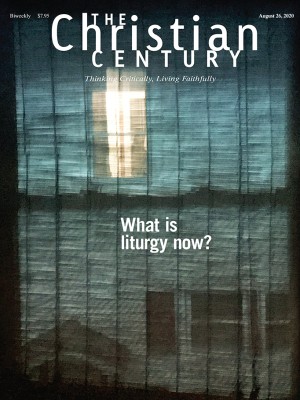September 13, 24A (Exodus 14:19-31; Exodus 15:1b-11, 20-21)
It's time for us to hear the song of Moses and Miriam in a new way.
Technically these readings are assigned for the 24th Sunday in Ordinary Time. But in many white mainline churches, the Sunday after Labor Day is dubbed “Homecoming” or “Rally Day”—the day when we switch from the summer schedule to the school year, launch Sunday school classes and youth programs, welcome the choir back, and more. To read the exodus story can feel like taking a victory lap, marking one more occasion when God prevailed, as we know God always will.
But why is this year different from all other years? The COVID-19 pandemic is precluding many of us from reopening in our usual and customary ways. The upcoming election is stirring our divided nation. The Black Lives Matter movement is pressing us to come to terms with structural racism. All of this pushes us to look at these readings through different lenses than we might have before.
Read our latest issue or browse back issues.
The exodus has rightly been celebrated as a rally: the Israelites’ escape from slavery in Egypt was the seminal confirmation of God’s providence and power. But it is not a presumptuous celebration. It is an expression of utter awe at the power of God to overcome evil and oppression, a reminder through time that “nothing is impossible with God” (Luke 1:37).
The odds against the Israelites are ridiculous. They are slaves, bought and sold as property; they are made to work without respect or recompense; women’s bodies are used for their owners’ sexual pleasure and to create more slaves. From the beginning of the book of Exodus, the inequality and dehumanization rapidly accumulate.
God’s intervention in choosing Moses to stand up to Pharaoh is not an immediate or obvious success. The more the people cry for freedom, the more they are oppressed.
In the end, it is not economic might, authoritarian power, or military force that thwarts Pharaoh’s aggression. Instead, God sends an angel to lead the Israelites and sets a pillar of cloud behind them, lighting up the night. God drives the sea apart, the waters forming a wall on either side for their safe passage, the ground dry beneath their feet. And if that were not enough, the mighty forces of Egypt are swept into the sea in the wake of the Israelites’ escape. Military power is no match for the power of God.
What is the Israelites’ response? Words and ritual alone cannot contain it; their awe rises in song. With tambourine and dance, they worship.
For those of us who have never known oppression, the giddiness of their song might seem appalling: “Pharaoh’s chariots and his army he cast into the sea; his picked officers were sunk . . . you sent out your fury, it consumed them like stubble.” There is no note of sympathy in their voices, no evidence of love for enemy. There is only gratitude to God who overcame their torturer, whose intent to destroy them should by all accounts have prevailed.
It is only when we read this through the eyes of the oppressed that we can even begin to appreciate the power of this experience of liberation. It is not for us to judge their adulation or to quiet their tambourines and song.
“Before you know what kindness really is,” writes Naomi Shihab Nye in her poem “Kindness,” “you must lose things.” Things like dreams of the future, achievements of the present, accumulated savings stashed away in storage barns as if they protected us (Luke 12:18). “All this must go so you know / how desolate the landscape can be.”
So also it is with freedom. You cannot know what freedom really is until you have been enslaved.
This spring, when the Black Lives Matter movement came to life in a new way, many of us white Americans began seeing—often for the first time—what the atrocities have been for people of color. How the end of slavery was not true freedom but simply living in the same land where people had been oppressed. How the Emancipation Proclamation did not produce an escape from the land of slavery to a new beginning but instead became a stopping point along the way. The chariots and riders are still at work in America.
For all of us whose people have never been in the land of slavery looking toward freedom, this song may be taking on a new meaning: God is on the side of the oppressed, not just in ancient Egypt but in modern America. It is still in God’s power to part the waters, to throw the horse and rider into the sea, to lead the slave to walk through the waters, free. It is time for us to hear the song of Moses and Miriam in a new way—for it is the hoped-for song of every people who have been oppressed, enslaved, demeaned. It is the longing of every soul whose future has no hope.





